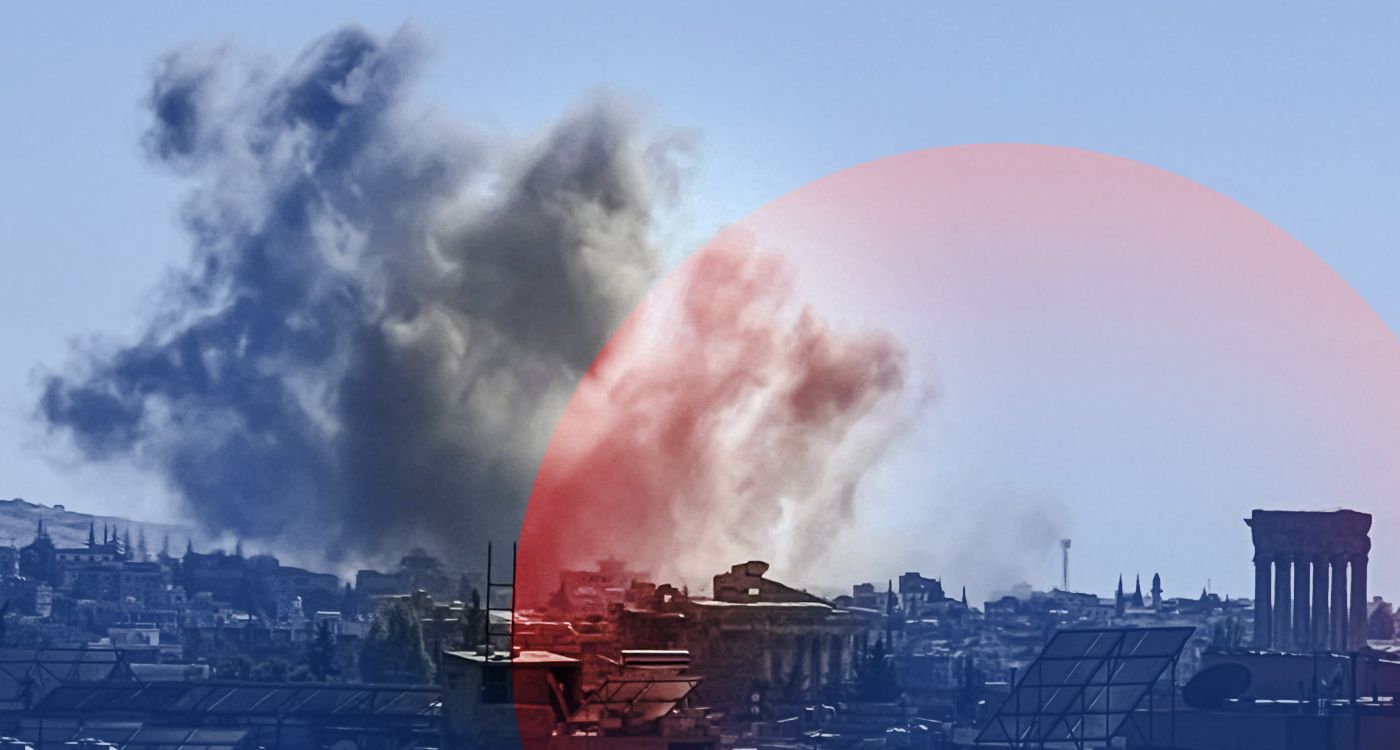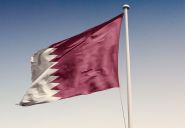
Following repeated evacuation orders directed at the residents of Baalbeck by Avichay Adraee, the Arabic-speaking spokesperson of the Israeli army, the Lebanese are anxious, fearing the potential destruction of the historic city. They are deeply concerned about the tragic fate of tens of thousands of people ordered to evacuate their towns and villages, as well as the possible devastation of heritage sites, including the famed "City of the Sun."
Fortunately, the dozens of deadly strikes on Wednesday, which left at least 31 dead and around 50 injured, spared the historic sites. "So far, no damage has been reported to the temples of Baalbeck or the old houses," Baalbeck-Hermel governor Bachir Khodr told This is Beirut, adding, however, that "three days ago, Israeli strikes hit a Roman wall near the site known as Gouraud" (a reference to French mandate General Henri Gouraud).
Two adjacent perimeter walls in the historic city – one dating back to the French mandate and the other from the Ottoman era – were destroyed on Monday by Israeli bombings. However, the site itself was not impacted, confirmed Khodr.
The governor, who decried Wednesday’s Israeli raids that heavily targeted Baalbeck and Douris, noted that "the localities of Mazraet Abou Salibi and Bednayel were targeted, even though they are not within the designated zone" outlined by the Israeli spokesperson.
However, Israeli operations in Baalbeck continued throughout the day on Wednesday. Adraee issued a new evacuation call on Thursday to residents of Baalbeck, Aïn Bourday and Douris. On his X account, he warned, “You are in a combat zone that the Israeli army plans to attack, where Hezbollah’s infrastructure, facilities and targets are located.”
The governor of Baalbeck-Hermel advised residents of Baalbeck not to return home on Thursday, emphasizing that "the area is still dangerous." He stated in a message on X, "Several shelters have been opened in the Beqaa district, and most of them are currently vacant and available for your use." He also urged those who have traveled to the village of Deir al-Ahmar to use the available shelters.
Khodr noted that among the tens of thousands who evacuated yesterday, many ended up in Deir al-Ahmar, where the accommodation centers have been overcrowded for weeks. Consequently, some people had to sleep in their cars or even on the street. He urged them to go to shelters in the Beqaa district that have been opened to accommodate them.
For his part, the governor of Beqaa, Judge Kamal Abou Jaoudeh, reported that, according to the latest updates from the operations room of the Crisis Management and Disaster Risk Committee in the governorate, several displaced can be accommodated in the following shelter centers: the Qab Elias Food Industries Institute, which can host 100 people; the vocational school in Qab Elias, with a capacity for 65 people; the Jeb Jenine Institute, which can accommodate 130 people; the Manara Institute, with space for 110 people; the Inmaa Rashaya Institute, able to welcome 100 people; the public college in Aaiha, which can house 100 people, and the official institute in Baka, which can accommodate nearly 60 people.
When asked why UNESCO blue shields have not been placed on the historic sites of Baalbeck, Khodr replied that this question should be directed at the caretaker Minister of Culture, Mohammad Mortada. The "Blue Shield" symbol, which signifies international protection for heritage sites, was deliberately removed from the historic citadel at the minister's order in November 2023. At that time, Mortada stated that " the Lebanese Army and the strength of the Resistance (Hezbollah) are the true protective shield of the country," ignoring his primary responsibility to protect archaeological sites and those of historical interest. By disregarding the symbols of international law, the minister potentially exposes the ancient and majestic columns of Baalbeck to increased risks.
Furthermore, Khodr stated that "the Lebanese ambassador to UNESCO, Moustapha Adib, is working diligently with the relevant parties to ensure that the archaeological and historical sites of Baalbeck are not targeted." Nevertheless, these sites are not entirely safe from danger and could be compromised by nearby Israeli strikes.
To this effect, the MPs and ministers from Baalbeck-Hermel, along with the governor, are scheduled to meet at Parliament on Friday at 10:30 AM to discuss issues related to the current situation in the city and the needs of displaced persons.




Comments